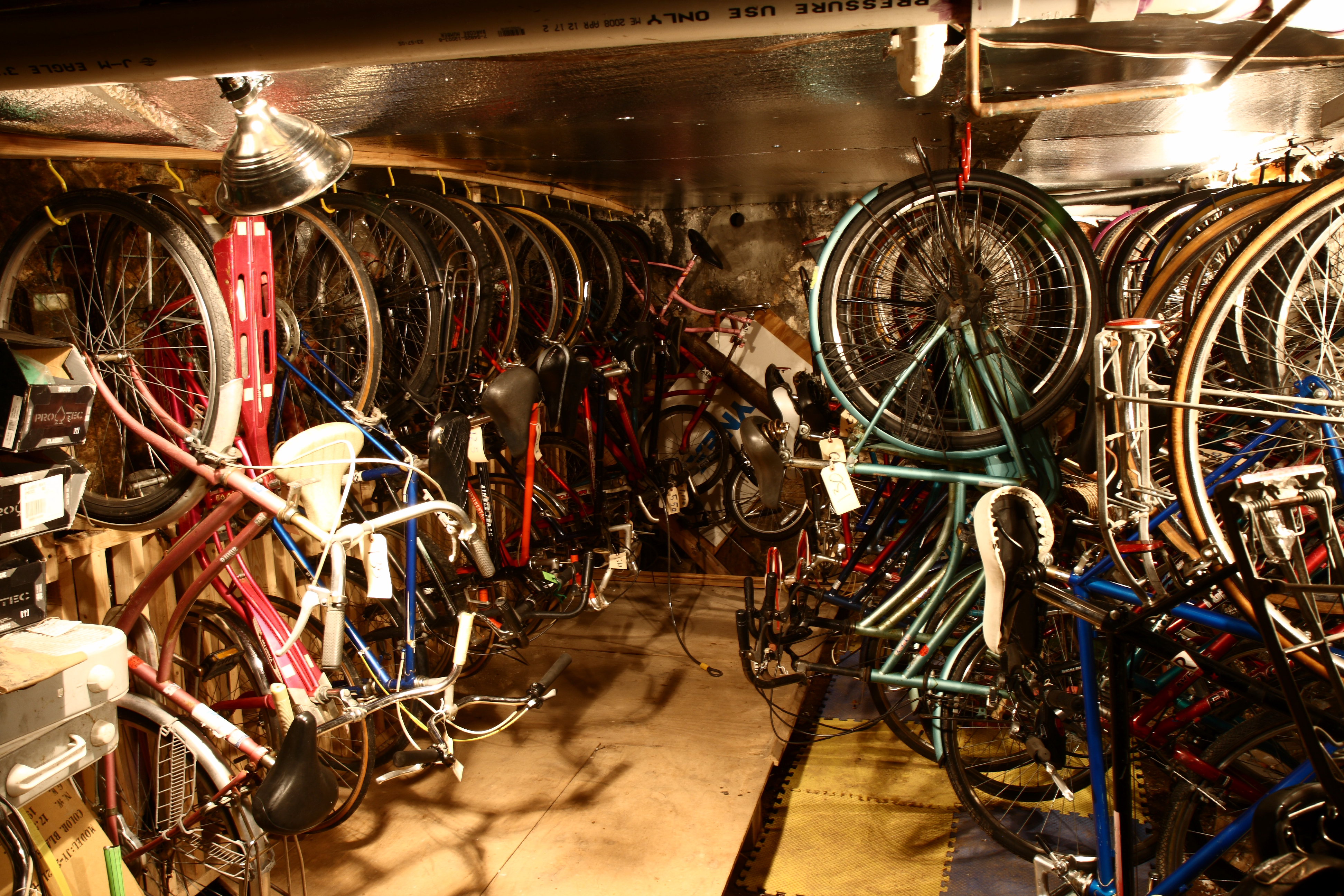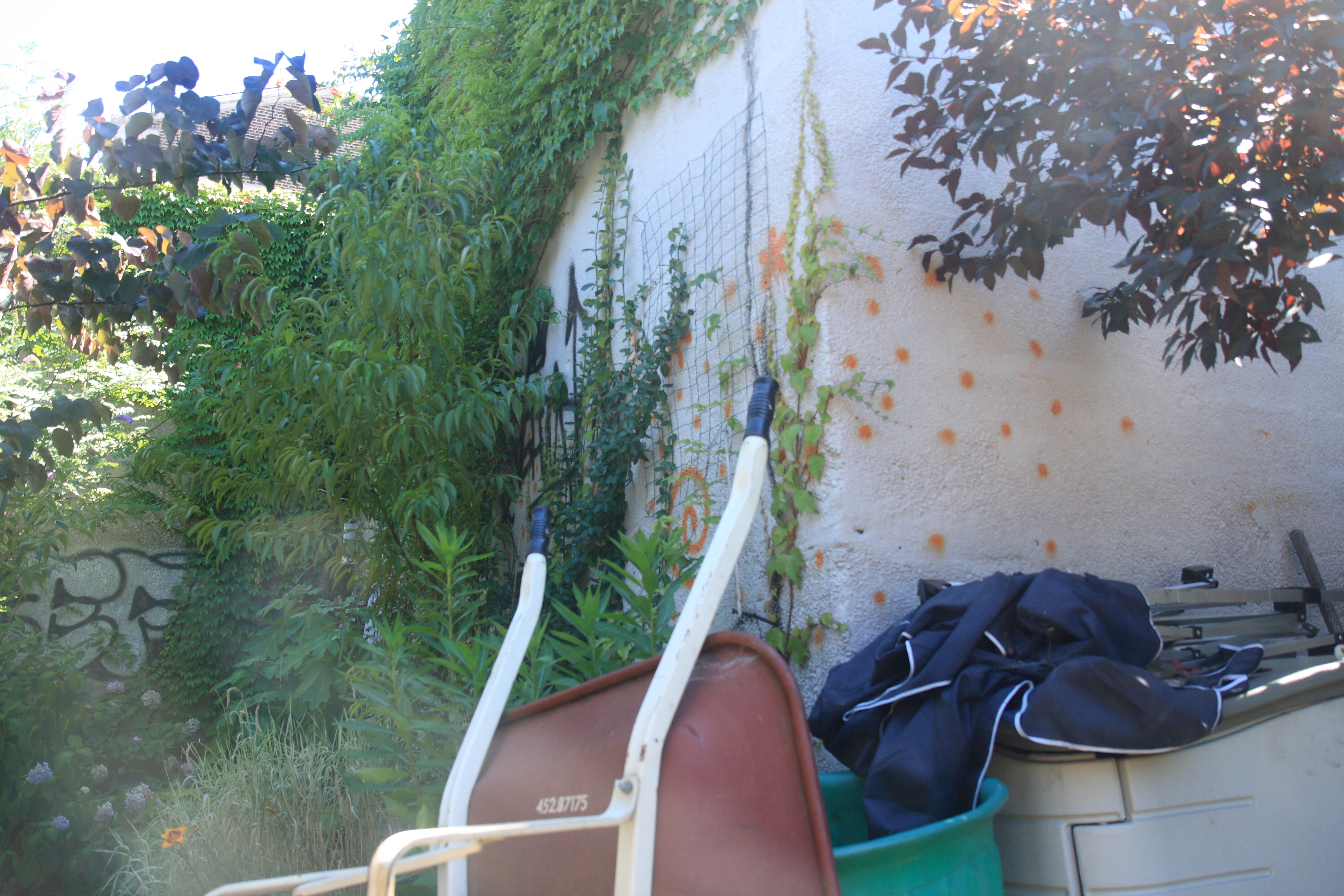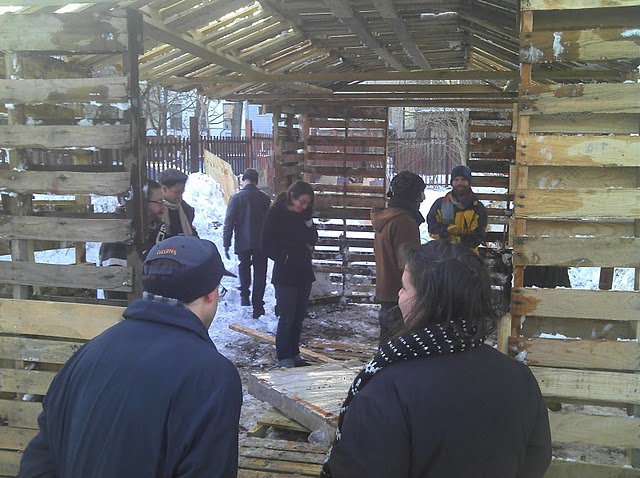
photos by Maximus Comissar
neighborhood: East Williamsburg / Bushwick | space type: community space; guerilla garden | active since: 2004 | link: website, facebook
Who says a space has to be enclosed by four walls, or even have a roof? Trees Not Trash is a guerilla gardening group run by Kate and Cory, a wife and husband team, who are two of the nicest, most dedicated people I’ve ever met. Over the past seven years they’ve appropriated four abandoned outdoor spaces, working to turn plots of land that were hideously overgrown or dense with years of garbage into lovely community gardens and urban oases.
They’ve also requested and received over two thousand trees from the NYC Parks Department, which have been planted throughout Bushwick, and they’ve further beautified neighborhood blocks with dozens of planters that they made from found tires and wood. Kate and Cory involve volunteers throughout the community, including hipsters, of course, but also many neighborhood children, to whom they teach the fundamentals of gardening, often sending the kids home with fresh herbs and vegetables.

brooklyn spaces: Give me a run-down of the spaces.
Kate: There’s four: the little garden by the Morgan Ave L train stop, the big community garden on Bogart, the Jefferson Street garden, and the new one at the Bushwick Library.
brooklyn spaces: What inspired you to start this project?
Kate: We’d been working with the city to get trees put in for awhile, and we’d been thinking about the abandoned lot on McKibben Street. Then someone contacted me and said, “Hey, I rescued these four evergreen shrubs. Can you help me plant them?” I was like, “Yes! We need to do this garden now.” So we climbed over the fence and just started pulling weeds and digging up the soil. It was dirty, dirty, nasty work. The weeds there were taller than most people. We went in there with machetes and did the jungle thing.

brooklyn spaces: Were you worried about getting in trouble?
Kate: I made the assumption that everybody was going to be in support of what I was doing. I figured it would be very difficult to tell somebody not to clean up garbage and plant trees and flowers. I just wanted to improve the neighborhood I was living in. I think that’s one of the things guerilla gardening is all about.
brooklyn spaces: Was it hard to get people in the neighborhood involved?
Kate: We had this incredible group of people who would dedicate their entire Sunday to getting really disgusting and dirty. Even on days when we were going to be touching twenty-year-old garbage, everybody was like, “Yeah, I want to do that!” This is where you live, you know? It was like-minded people coming together and doing something,
brooklyn spaces: How about local kids?
Kate: The Jefferson Street garden became their hangout. All of the kids adopted a tree, and they totally made that garden their own. It’s their stomping ground. Every Sunday at 1:00, there’s kids banging on our door, wanting to plant and stuff, saying, “When are we gardening today?” We grow food there, which was huge for them, because none of them had ever grown food before.
brooklyn spaces: What kind of events do you have in the spaces?
Kate: At the library garden we’re working on doing a reading series, where it’s really beautiful and shady. We’ve really made a little oasis there, at that terrible intersection. Bushwick and Seigel is so oppressive. It’s hot, tons of traffic, no respite from anything, and with projects all around. Which is actually cool, because as we’re working, people from the projects can see what we’re doing, that this revolting little space that was strewn with garbage and filled with rats is now turning into this oasis, and they can go and sit in it. At the community garden, we’ve had garden parties where dressing up is required, and we play badminton and things. We make big pitchers of Pimm’s cocktails, using stuff from the garden, like cucumbers and lavender. We actually got married in that garden.
brooklyn spaces: Did you set out to be a guerilla gardener?
Kate: No, I didn’t really have any idea of it being guerilla gardening when I started. It was selfish as well as community-minded. I really wanted trees, and I wanted other people to want trees. But I never really had a plan, like, “I’m going to wear a bandanna and do this in the dead of night.” It just became that way.
***
Like this? Read about other community spaces: Bushwick City Farms, #OccupyWallStreet art show, Trinity Project, Time’s Up, Brooklyn Free Store, Body Actualized Center, No-Space








